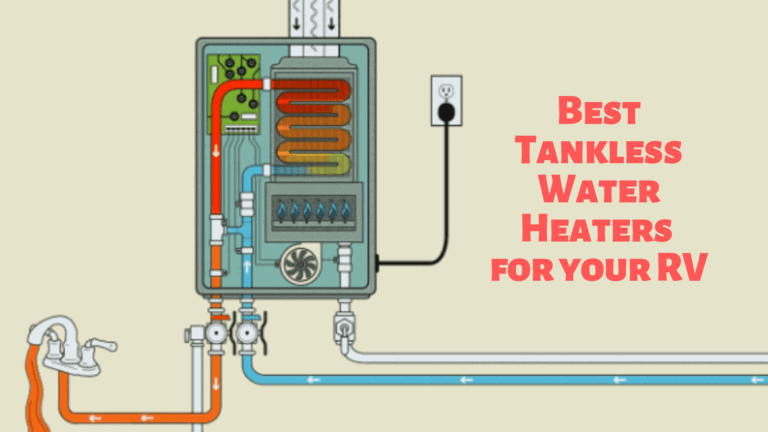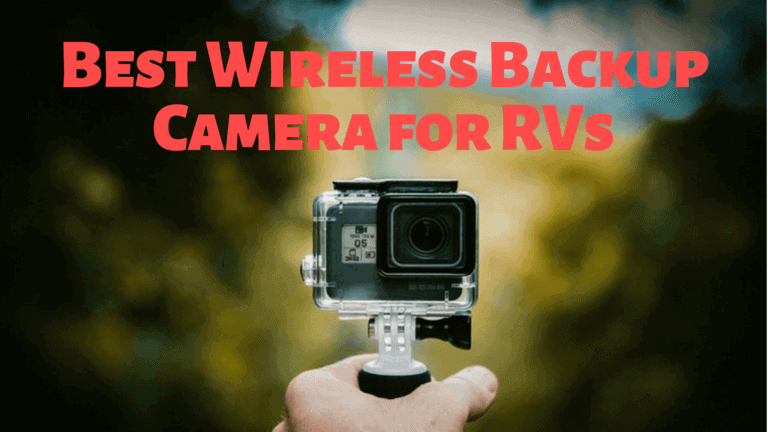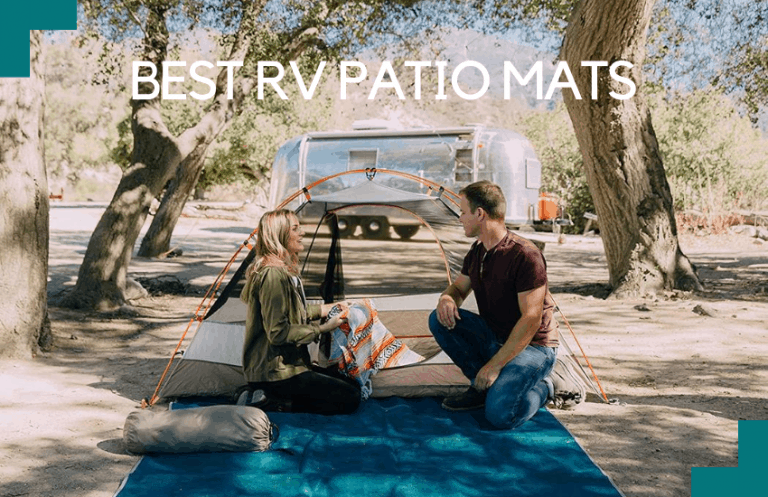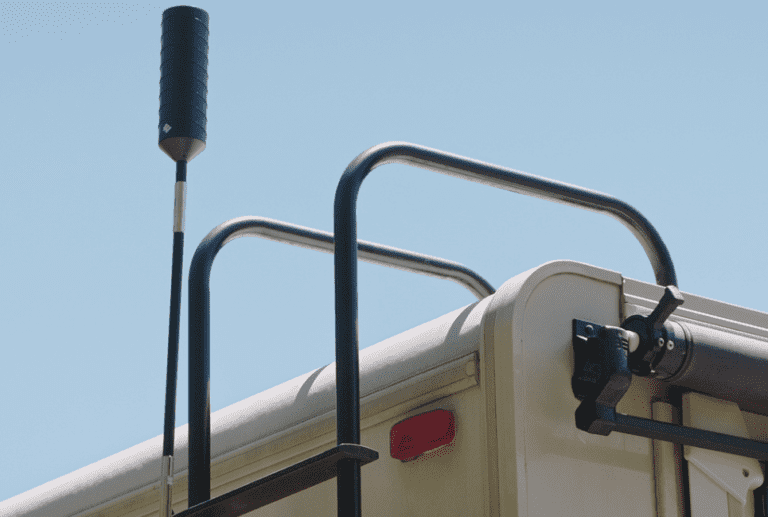The Best Solar Panels for RV: Which One Is the Right for You?
- Airstream vs Oliver Comparison: Which Is The Best? - April 21, 2024
- The Best Travel Trailers for Jeep Wrangler On The Market - September 15, 2022
- The Best Travel Trailers Under 4000 lbs for Your Next Trips - September 15, 2022
In this guide, we’ll be doing a comprehensive overview of the 5 best solar panels for RV available today to help you decide which one you should buy. You need a stable and reliable electrical power supply source during your RV trip with friends and family. What better than a continuous supply of a free natural energy source to run your appliances in your RV?
Back in the day, you would need a generator or a nearby power source to plug and run your appliances in an RV. Today, you can easily install solar panels on your RV and have renewable energy on the go. Solar panels can easily be installed on the roof of your RV and can plug and play on almost all devices. Solar panels come in all different specifications and sizes and can easily be upgraded when needed.
Let’s have a quick look at the 5 best solar panels for RVs available today and then go through some of the reasons you need a solar panel and what things should be considered when buying one.
| Model | Panel Type | Watts | Price |
| Renogy Monocrystalline Solar Starter Kit | Monocrystalline | 200 | Check the latest price |
| HQST 12-volt 100-watt Polycrystalline Solar Panel | Polycrystalline | 100 | Check the latest price |
| Go Power! 130 Watt Portable Solar Kit | Polycrystalline | 130 | Check the latest price |
| WindyNation 100W Solar Panel Kit | Polycrystalline | 100 | Check the latest price |
| ACOPOWER 100-watt Foldable Solar Panel Kit | Monocrystalline | 100 | Check the latest price |
Also: Check out our Roadtrek vs Airstream comparison that will help you decide which company you should get your RV from.
Why You Need A Solar Panel Installed In Your RV

Let’s face it – you can’t have a long road trip in your RV today without electricity. RVs were built to be moving houses for families and friends to stay in and move around.
So just like you need electricity in your house, the same goes for your house on wheels. And what better way to get electricity in your mobile abode than from the sun itself.
Solar panels absorb light from the sun and generate electricity which can be stored and used to run electrical appliances.
A solar panel is a sheet of electrodes that absorbs light from the sun and creates electricity. A solar panel produces free and clean electricity, which is soundless and reliable.
Solar panels have no carbon footprint, and they do not come in your way when installed. They are often set up on the RV roof at different angles to catch the maximum light.
Solar panels have become a popular choice amongst RVers who want to clean energy on their road trips and escapades. And what’s not to like? They’re easy to install, don’t require an expert to maintain, make no sound whatsoever, and you can also store electricity in batteries to use afterward.
So if you are looking to get a reliable and clean source of electricity for your RV, solar panels will be an excellent investment for your RV.
You don’t just need an electricity fix when you’re on the road. Waste disposal is a big concern for many, but lucky for you, we’ve covered the best portable waste wagons you can buy in 2021.
Things to Consider When Buying Solar Panels for Your RV

There are some pointers you need to consider before you buy a solar panel for your RV.
Power Requirement
To find the best solar panel for your RV, you will need to know how much power your appliances and devices need. What appliances do you usually use, how much electricity do they use, and how long will they be running? Ask yourself these questions to make the right decision.
Your electricity usage will depend on the number of electrical appliances you use and how much energy they consume.
Most RVs use two to three solar panels, which combined usually produce enough energy to run small appliances. If you think you need to add bigger appliances such as a fridge or an AC, you will need to add more solar panels to fulfill the energy requirements.
In the beginning, you will most likely not know how much power you will need on your trips. In that case, you can always go for a basic solar panel with a backup battery to conduct a test run. This will help you find out how well it works and whether or not this system meets your needs. Then you can just add more solar panels and expand the system if you like.
Keep in mind though, more batteries attached to your system means more backup power, resulting in more space required for said batteries.
Installation
Solar panels can be set up in two simple ways. One is to manually set them up on the roof of your RV during each trip and the other is to mount them permanently.
The most popular method for most RVers is to set them up on every camping trip as it’s easier. You set up the solar panels facing the sun and connect them to your batteries. It’s as easy as that, though the panels have to be folded and kept in your RV after every trip. Not much of a problem for me but could be a little cumbersome for others.
The other way is to mount the solar panels on the roof of your RV, which means you always have energy available to use. But the downside is that with most fixed setups, you won’t be able to shift the direction of the panels. Also, they are a little more expensive than the removable panels, but the convenience they offer is undeniable.
Types of Solar Panels
As I mentioned earlier, there are different types of solar panels available in the market. These include monocrystalline, polycrystalline, and amorphous.
The most efficient and also the most expensive ones are the monocrystalline panels. These panels are recommended if you are short on roof space. These panels are also referred to as a rigid solar panel as it’s mounted on the roof of your RV with bolts, providing it rigidity.
When more than 2 solar panels are bolted on the roof of your RV, they seem to appear like one solar panel with ridges in it. Polycrystalline panels are also quite good, having more or less have the same design features as the monocrystalline panels. However, they are less efficient in electricity production but also cheaper.
Amorphous solar panels are thin and flexible. They are also widely known as “flexible solar panels” because they can be bent and stored for ease of use. Being the least efficient solar panels makes them the cheapest of the lot too. The worst part is that they need to be glued to your RV’s roof to work. Removing them for any maintenance work can be a hassle and will damage your paint.
These flexible solar panels are not that common amongst solar system users, but some new users with fairly less energy usage may opt for this cheaper option.
Power Backup
If you are thinking of installing solar panels on your RV, then the thought of additional power backup must have crossed your mind. Having an extra set of batteries translates into having more power for later use. Solar panels can typically connect to 12V batteries, similar to car batteries.
The most common batteries used in solar panels are lead-acid batteries and lithium-ion batteries.
Of the two, lead-acid batteries are more commonly used as they tend to live longer than lithium-ion batteries. Being cheap and durable also makes them the ideal choice. However, they usually need to be replaced in about 2-4 years and require regular maintenance to operate properly.
On the other hand, lithium-ion batteries are maintenance-free but substantially more expensive than lead-acid batteries. They last longer than lead-acid batteries and are way more efficient. If you are a regular RVer, then a lithium-ion battery will be better suited to your needs.
Power backup depends on the number of appliances hooked to the system. For example one 12V 100A battery can give a back up of up to 6 hours for a couple standing fans and lights. The backup will decrease with the increase in the number of appliances.
Looking for a battery to power your RV? We’ve covered how to find the best batteries for RVs that will make it a lot easier for you to find the right one!
5 Best Solar Panels for RVs
Now that we’ve covered the reasons why you should get solar panels and what to look for, let’s talk about the 5 best solar panels for RVs you can buy in 2021.
Renogy Monocrystalline Solar Starter Kit

Renogy Monocrystalline Solar Starter Kit is an excellent solar panel from the renowned brand. It comes with a great 12-volt 200-watt capacity and is specifically designed for people who are looking to shift to solar panels. It is very effective for off-grid applications and works like a charm in remote areas.
Wherever you decide to camp, be it on a mountainous range or far away grasslands, this solar kit is designed to power your RV efficiently. The Renogy Solar Starter Kit, much like most solar panels, is known to provide power without causing any noise disturbance as you would expect from a solar generator.
It does not depend on the power supplied by a grid. The kit has most of the tools that one would need to make a solar panel system work. The kit includes the solar panels, the charge controller, adapter kit, connectors, brackets, and a tray cable.
The solar charger controller supports 30A PWM and can help in expanding your solar panel kit to a staggering 400 watts. It also has a negative grounding controller offering protection against battery short circuits, overcharging, reversals, and overloading.
The Renogy Solar Kit offers an ideal output of 1000 watt-hours a day and can easily charge a 50 Ah battery in 90 minutes in ideal sunlight conditions. The kit also comes with an 8ft 10AWG cable to connect your controller to the battery.
The mountings or the frame are made of aluminum, making it corrosion-free and allowing for extended use in the outdoors. The material used in this solar kit makes it durable and lasts for tens of years, thus making it a great investment.
All that makes me confident that this solar kit is one of the best options out there, offering reliability, safety, and long-term use. Installation of the Renogy Solar Kit is also fairly easy and straightforward with a step-by-step manual provided.
Pros
- Promotes grid independence
- Easy installation
- The number of solar panels can be increased with increasing electricity demands
- Negative grounding for the safety of system from short circuits and other battery malfunctions
Cons
- The labeling on the solar kit could be a tad more clear for users to follow the instructions well.
HQST 12-volt 100-watt Polycrystalline Solar Panel

The HQST 12 Volt 100 Watt Polycrystalline Solar Panel is one of the best solo solar panels out there. It is known for its reliability and has 36 highly efficient solar cells with tempered glass protection.
The HQST Solar Panel can work as a standalone system and also support an already installed solar panel system. The solar panel is constructed in such a way that it can resist harsh weather conditions such as snow, rainfall, and high winds.
It is very easy to use this solar panel. Simply plug and play thanks to the MC4 leads integrated into the panel. It is also very easy to mount. It can be both on the ground and also on the rooftop.
It has pre-drilled holes you can find at the back that make it easy and fast to install when it comes to securing the panel. The thing I liked the most about the panel is that it can be used for almost all solar applications, be it in a household, an RV, or a rural area. It can also be used in boats, caravans, motorhomes, and other moving vehicles.
Safe to say, it can act as a great component to your already existing solar panel system. One drawback is that the solar panel is fairly heavy and some people might have a hard time mounting it on the top of the RV.
Pros
- Efficient electricity product
- Tempered glass for solar cell protection
- Easy plug and play operation
- Easy to mount
- The non-corrosive aluminum frame comes with a panel for durability
Cons
- Heavier than most solar panels
Go Power! 130 Watt Portable Solar Kit

Some RVers don’t want to install a roof-mounted solar panel. Maybe they don’t like it or don’t like the idea of something mounted on their RV. If that’s you, then the Go Power! 130 watt Portable Solar Kit may be the best choice for you.
The Go Power! The kit has a foldable feature with all the necessary components built into the panel for you to use it however and whenever you want to. It is easy to store and to use with its adjustable legs and a carrying case which comes along with it. The kit also comes with a 10 Amp PWM charge controller, cabling, and battery clamps for recharging your battery.
One great thing about the Go Power! The kit is that it offers its customers a 25-year warranty which makes it a safe choice for many people.
Go Power! is one of my favorite solar kits because it’s lightweight, foldable, and comes with a storage case for convenience. I’ve used it as part of my existing solar panel system and it works like a charm.
One downside though is that it does not offer a lot of power. It is ideal for situations where one needs to only run a few small electrical appliances. So while it’s great for a small family trip, you can’t (and shouldn’t) rely on it for long road trips with overnight stays.
Pros
- Easy installation
- Can be folded and stored
- Built-in charge controller
- Can be added to your existing power supply
Cons
- Pricey
- Does not include an inverter with the system
- Not compatible with lithium-ion batteries
WindyNation 100W Solar Panel Kit

Another great entry in this list is the WindyNation 100W Solar Panel Kit. For a very affordable price, you can easily install it yourself and start using off-grid energy when needed. The WindyNation Solar Kit includes a polycrystalline panel that delivers a maximum power output of 100 watts. On a normal sunny day, the solar kit will give out around 350 watt-hours, which is fairly decent.
The kit also comes with a P30L charge controller. You can effortlessly monitor amperage, ampere-hours, voltage, load, and even the temperature of the charge controller while charging. A good thing about this kit is that you can increase efficiency by fine-tuning the charging settings by inserting custom values. You would of course need to be knowledgeable about this before giving it a shot.
The controller can handle a total of three 100W 12 V solar panels, which gives you the convenience to install 2 more solar panels if your power requirements increase down the road.
The charge control is compatible to use with a range of batteries such as lead-acid batteries, AGM batteries, gel batteries, and lithium-ion batteries. A 40 ft AGM cable also comes along with the kit to connect the plates and charge controller to the battery.
The WindyNation Solar Kit has an aluminum mounting kit, making it durable and corrosion-free for extended use. In my opinion, it’s an ideal solar kit if you’re just getting started with solar kits and clean energy. It allows you to be flexible in installation as well as your energy requirements.
That said, I have found out that some RVers have complained that the kit does not come with complete wiring and sometimes also came with shorted solders. Though this happens in very few cases, it’s something you should know of.
Pros
- Room for additional solar panels for increasing power
- LCD to monitor amperes and ampere hours
- Compatible with a wide range of battery types
- Versatile and can be installed in boats, homes, and other places
Cons
- Does not come with complete wiring
- Need to add an inverter to the kit
ACOPOWER 100-watt Foldable Solar Panel Kit

Last but not least, we have the ACOPOWER 100-watt Foldable Solar Panel Kit. The panels are compact and due to the increasing demand for solar kits, this one is a great unit for people who are just making the transition to solar energy.
The ACOPOWER Solar Panel Kit is very easy to set up and has a wide range of applications to it too. The kit can be used on a campsite, on a beach, or any other off-grid site to great effect. The kit comes with 2 pieces of foldable 50W high-efficiency monocrystalline solar panels and a 10 A charge controller. It can work as a battery-ready kit or a generator-ready kit, depending on your preference
The kit also comes with MC4 connectors which can charge a 12v battery and give power to your RV at the same time. Additional solar panels can also be connected to the existing kit to generate more power if needed.
One more noteworthy feature of the ACOPOWER solar panel kit is that it does not require any additional separate mounting brackets. It comes with a couple more options depending on your energy requirements, so the user can choose from a variety of options available.
The installation part will be a little tricky for first-time users as I found the instructions to be a little vague. So ideally you should have someone with experience in solar energy systems to help you set this kit up.
Pros
- Versatile applications
- Compact
- Variety of options to choose from
- Features a protective case for storage
Cons
- Vague instructions for installation
The last thing you want is your RV moving in the middle of the night because you didn’t get a good pair of leveling blocks. Check out our guide on the best level blocks you can get for your RV in 2021!
FAQs
Question: Which solar panel is best for installing on my RV?
Answer: There are three kinds of solar panels; monocrystalline, polycrystalline, and amorphous. Monocrystalline and polycrystalline are the most efficient RV solar panel types.
However, amorphous panels are cheaper. I would personally recommend monocrystalline solar panels as they are very efficient when it comes to energy production. You can estimate the amount of power you need and make a well-informed decision accordingly.
Question: How many solar panels do I need in my RV?
Answer: It entirely depends on the power usage of your RV. To give you an idea, a 100 watts solar panel offers 6 amp power with the sun at its peak and an average refrigerator needs at least 6 amp to function properly.
So if you need to run your refrigerator along with other electrical appliances such as an AC or a heater or an iron, you will need a couple more additional plates to keep your electrical system in place.
Please note that more batteries are required to give you backup power for using these appliances conveniently.
Question: Do I have to install a battery with my solar panels?
Answer: It is preferred to have a battery installed with your solar panels as it provides you with backup power. But it depends on your usage as well. If you are planning to use the solar panel only for the day and don’t normally go on overnight trips, that makes the battery capacity redundant.
Question: How to install a solar kit?
Answer: Installation of solar kits is fairly easy and instructions are typically provided with the kit.
Just to give you an idea of how it works, a solar panel is either mounted on the roof of your RV or placed outside, and then connected to a controller. The controller is then connected to an inverter to power your RV or is connected to a battery to charge it and power your RV.
Most of the solar panels follow this way of installation, but I would recommend you follow the instructions which come along with your solar kit purchase.
Setting up a solar panel is fairly straightforward, but so is doing some regular plumbing work in your RV. So why not get yourself a rundown of the essentials of RV plumbing that will only make you a better RVer?
Which Is the Best Solar Panel for your RV?
Keeping the RV powered has become a necessity for most RVers, be it with a generator or a solar panel.
Instead of using a generator that is loud, requires regular maintenance, and not to mention, is not great for the environment, you should go for a solar panel kit in order to generate solar power.
The 5 solar panels reviewed are all great, but the solar panel which took the cake for me is the Go Power! 130 Watt Portable Solar Kit.
It’s easy to install, versatile, and powers up your RV with ease. The ability to add more solar panels into the system also made it a good solution when my energy requirements change. Plus the use of great quality materials makes it an excellent solar panel kit that offers great value for money.
A close second for me is the Renogy Monocrystalline Solar Starter Kit. I’ve taken it on camping trips in the mountains and it has served me well. I’ve taken friends on road trips and adding additional panels to the system was always an easy task.
In the end, it comes down to your personal preference. I hope this review helped you in understanding why you should go for solar panels. The solar kits reviewed here will help narrow down your choices so that you can buy the best solar panel for your RV.








